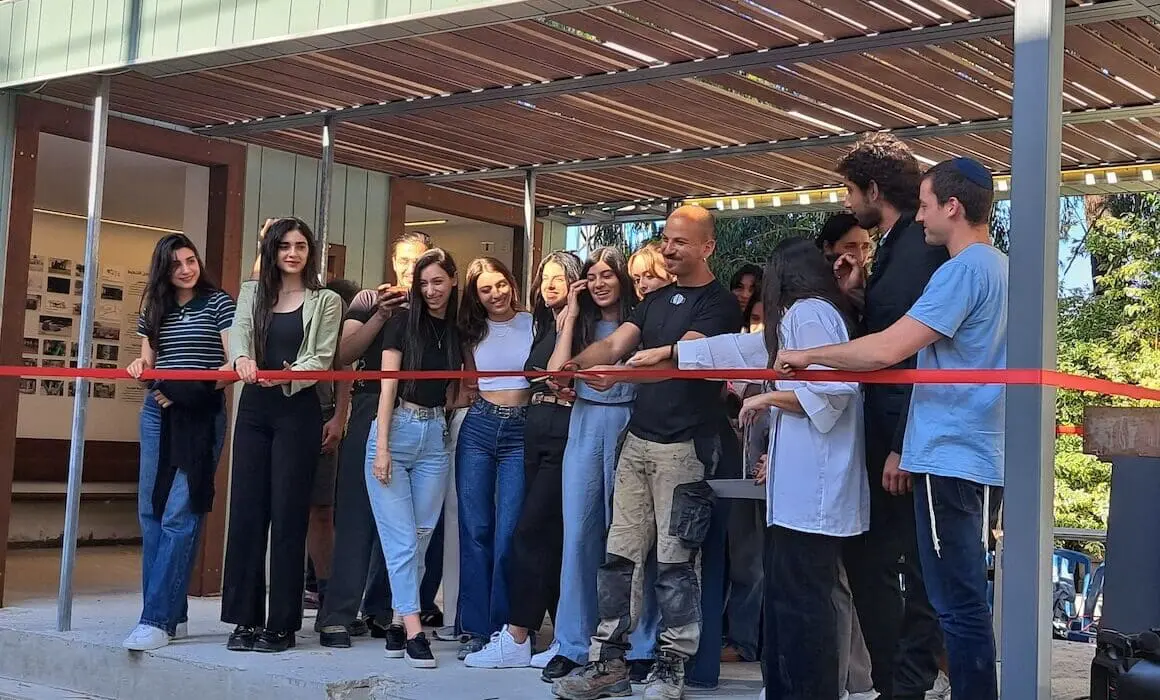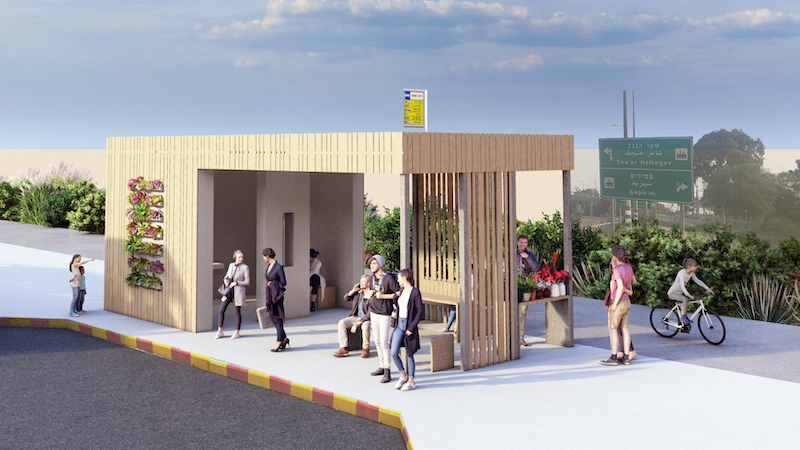Technion Students Reinvent the Bus Stop

Following the events of October 7, Technion students have designed a pilot bus stop to address safety concerns. The stop acts as a shield for passengers from shrapnel and blasts and includes personal safety features such as phone charging, WiFi, and a system alerting bus drivers to waiting passengers. It was designed in three sizes to reflect the expected number of users. The largest of the three models was constructed at the Technion.
Beyond protection, the stop addresses issues that include rain, sun, accessibility, and long wait times, and offers amenities like bike parking, a water fountain, vegetation, and a community info display. The “smart station” features warning mechanisms and sensors integrated by Tom Sofer, a lab engineer and senior project advisor in the Center for Smart Technologies in the Henry and Marilyn Taub Faculty of Computer Science.
A rendering of the finished bus stop.
The bus stop was built by 30 Technion students as a pilot for new bus stops in Israel. This is the 10th in a series of community engagement projects in Studio 1:1, part of the Faculty of Architecture and Town Planning, under the guidance of Assistant Professor Dan Price and Dr. Michal Bleicher, both of whom are also working architects. The idea of the protected bus stop was born at the hackathon “The Day After – Housing, Accommodation, and Community.” Held shortly after the events of October 7, 2023, and initiated by various architects, including Bleicher, the hackathon focused on promoting social projects proposed by academia.
The planning included selecting ideas from 15 proposals and holding three meetings with professionals from various national infrastructure organizations: Netivei Israel, Netivei Ayalon, the Ministry of Transport, the Home Front Command, and the Western Negev Regional Cluster. The station was built by the students during the semester break at the National Building Research Institute at the Technion. It will be located near the Technion sports complex where it will be used for testing and further research. The project was supported by the Azrieli Foundation and numerous local donors.




